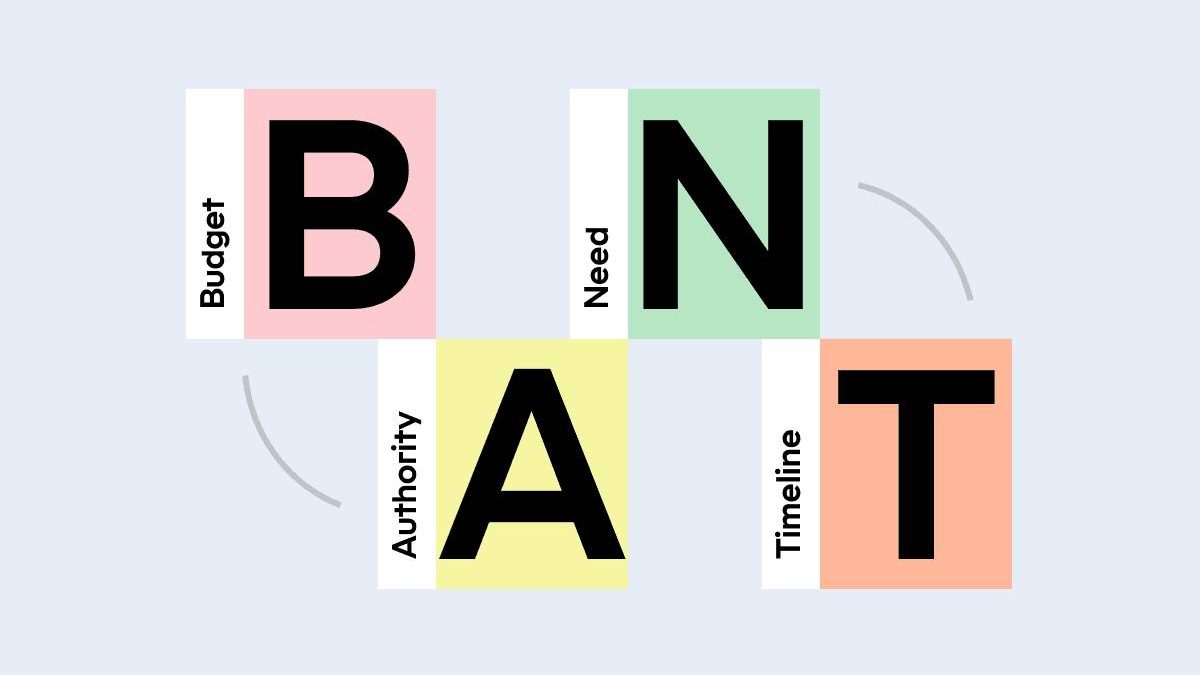Modern sales techniques have evolved over the years, but the tried and true BANT method has stood the test of time. This sales qualification system can be a game-changer in optimizing your sales conversation and ultimately boosting productivity and success. In this article, we will be discussing the significance of BANT and its benefits in the modern sales process. Keep reading to learn more.
Understanding the Significance of BANT in Sales

BANT in sales is an acronym that stands for Budget, Authority, Need, and Timeframe. In sales, these four factors act as qualifying parameters that help sales professionals ascertain their prospects’ readiness to buy. This ultimately guides the negotiation process and the overall sales cycle.
“Budget” refers to the prospect’s economic ability to purchase the product or service. Establishing whether the potential buyer has the necessary funds assures the sales team that they are not wasting their efforts on unfeasible leads.
“Authority” in the BANT methodology refers to identifying decision-makers in the buying process. In sales situations involving multiple stakeholders, targeting decision-makers can expedite the sales cycle and increase conversion rates.
“Need” is the third aspect of the Bant model. Understanding the need helps a sales rep to position their product or service as the perfect solution to the customer’s problem.
“Timeframe” allows salespeople to prioritize leads based on the prospect’s readiness to make a purchase. It affects the formulation of a sales strategy, guiding when to push for a close or when to nurture and follow up.
Traditionally, the BANT methodology has been integral in helping salespeople identify and qualify leads. It provides a robust framework in the qualification process, helping to weed out unqualified leads and direct resources toward potential buyers with the highest likelihood of converting. However, it requires a flexible application, careful analysis, and a keen understanding of each prospect’s individual needs and circumstances.
Using BANT for Successful Sales Conversations

The BANT methodology offers several tangible benefits to salespeople and organizations. Perhaps the most important is its role in ensuring productive sales conversations. By discerning the prospect’s readiness to buy early in the sales process, teams can direct their resources and time more efficiently.
By distinguishing between qualified and unqualified leads, BANT allows salespeople to focus their efforts on the most promising opportunities. This not only boosts the probability of conversion but also contributes significantly to kitchen efficiency and productivity.
Employing BANT also supports creating customized sales strategies tailored to individual prospects. Understanding the specific needs and conditions of potential clients allows for customized presentations, which increases the odds of conversion.
In addition to its role in the initial stages of a sales conversation, BANT is also vital in the negotiation phase. Factors such as budget and authority help sales reps negotiate from an informed point of view, leading to more closed deals.
Evolving Sales Process: Integrating the BANT Methodology in Modern Times
In an ever-evolving business landscape, sales professionals have had to continually refine their strategies. While new techniques have emerged, BANT remains highly relevant and effective. It’s not just a methodology stuck in the past. Instead, it has proven to be versatile, adapting and complementing modern sales tactics.
Integrated with modern CRM systems, BANT can provide a deeper understanding of prospective customers, enabling more efficient and targeted sales strategies. It serves as a valuable supplement to sales analytics and forecasting, considerably enhancing decision-making and planning.
The rise of social selling and personalized marketing further presents an opportunity to capitalize on the BANT framework. As businesses strive to deliver personal, relevant content to their prospective customers, understanding their budgets, authority, needs, and timeframes becomes ever more critical.
As the digitization of sales processes continues to revolutionize the sales landscape, the integration of the BANT methodology can provide valuable leverage for those seeking to remain competitive.
Altogether, the BANT methodology, with its focus on qualifying leads based on budget, authority, need, and timeframe, remains an integral part of any effective sales strategy. By understanding the BANT process, companies can anticipate client requirements and align sales and marketing strategies to foster customer relationships and improve the sales process.

